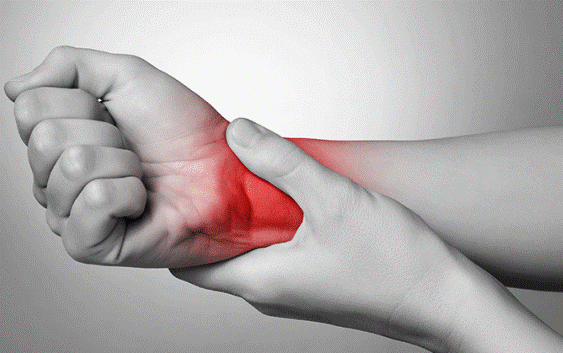What are Steroids?
Steroids (also known as cortisone or corticosteroids) are chemicals (hormones) that occur naturally in the body. Steroids decrease inflammation, suppress the body’s immune system, block DNA from being made, as well as blocking a chemical called histamine (released during an allergic reaction). Steroid medicines are man-made but are similar to these natural hormones.
The type of steroids used to treat disease are called corticosteroids. They are different to the anabolic steroids which some athletes and bodybuilders use. Anabolic steroids have very different effects. Steroids are available as tablets, soluble tablets, and solutions, creams, ointments, inhalers, and injections.
Some General Points About Steroids
- A short course of steroids usually causes no side-effects. For example, a 1- to 2-week course is often prescribed to ease a severe attack of asthma. This is usually taken without any problems.
- Side-effects are more likely to occur if you take a long course of steroids (more than 2-3 months), or if you take short courses repeatedly.
- The higher the dose, the greater the risk of side-effects. This is why the lowest possible dose which controls symptoms is aimed for if you need steroids long-term. Some diseases need a higher dose than others to control symptoms. Even for the same disease, the dose needed often varies from person to person.
- A common treatment plan is to start with a high dose to control symptoms. Often the dose is then slowly reduced to a lower daily dose that keeps symptoms away. The length of treatment can vary, depending on the disease. Sometimes the steroid treatment is gradually stopped if the condition improves. However, steroids are needed for life for some conditions, as symptoms return if the steroids are stopped.
What are the Possible Side Effects of Steroids?
For many diseases, the benefits of taking steroids usually outweigh the side-effects. However, side-effects can sometimes be troublesome. You should read the information leaflet that comes with your medicine packet for a full list of possible side-effects. The main possible side-effects include the following:
- ‘Thinning’ of the bones (osteoporosis). However, there are some medicines that can help to protect against this if the risk is high. For example, you can take a medicine called a bisphosphonate to help prevent bone loss
- Weight gain. You may also develop a puffiness around the face.
- Increased chance of infections, as steroids may suppress the immune system. In particular, you are at risk of having a severe form of chickenpox if you have not had chickenpox in the past (and so are not immune). Most people have had chickenpox as a child and are immune to it. If you are taking corticosteroids and have not had chickenpox in the past:
- Keep away from people with chickenpox or shingles.
- Tell a doctor if you come into contact with people with these conditions.
- Increase in blood pressure. So, have your blood pressure checked regularly. It can be treated if it becomes high.
- High blood sugar which may mean extra treatment if you have diabetes. Steroids may occasionally cause diabetes to develop. If you take long-term steroids, your doctor may arrange a yearly blood sugar test to check for diabetes – in particular, if you have a family history of diabetes.
- Skin problems such as poor healing after injuries, thinning skin, and easy bruising. Stretch marks sometimes develop.
- Muscle weakness.
- Mood and behavioral changes. Some people actually feel better in themselves when they take steroids. However, steroids may aggravate depression and other mental health problems, and may occasionally cause mental health problems. If this side-effect occurs, it tends to happen within a few weeks of starting treatment and is more likely with higher doses. Some people even become confused, and irritable; they may develop delusion, and suicidal thoughts. These mental health effects can also occur when steroid treatment is being withdrawn. Seek medical advice if worrying mood or behavioural changes occur.
- An increased risk of developing cataracts.
- An increased risk of duodenal ulcers and stomach ulcers. Tell your doctor if you develop indigestion or tummy (abdominal) pains.
The above are only the main possible side-effects which may affect some people who take steroids. There is often a balance between the risk of side-effects against the symptoms and damage that may result from some diseases if they are not treated. Some of the less common side-effects are not listed above but will be included on the leaflet that comes with your medicine.
Related posts:
 Why Steroids are Bad for You
Why Steroids are Bad for You
 5 Breakfast Tips for Weight Loss
5 Breakfast Tips for Weight Loss
 ورزش کیلئے چند اہم ہدایات
ورزش کیلئے چند اہم ہدایات
 پاؤں اور منہ کی بدبو کا دیسی علاج
پاؤں اور منہ کی بدبو کا دیسی علاج
 15 Herbal Teas That Can Heal You
15 Herbal Teas That Can Heal You
 7 Hardest Ab Exercises
7 Hardest Ab Exercises
 No Equipment, No Time? How to Get in a Great Workout
No Equipment, No Time? How to Get in a Great Workout
 5 Bodybuilding Laws That Should Not Be Broken
5 Bodybuilding Laws That Should Not Be Broken
 14 Home Remedies for Arthritis & Joint Pain
14 Home Remedies for Arthritis & Joint Pain
 Healthy Ramadan Meal Plan
Healthy Ramadan Meal Plan
 مزیدار بیف کڑاہی گوشت اور بیف روسٹ کی مزیدار تراکیب – عید الاضحی اسپیشل
مزیدار بیف کڑاہی گوشت اور بیف روسٹ کی مزیدار تراکیب – عید الاضحی اسپیشل
 How To Make Creamy Ice Cream with Just One Ingredient
How To Make Creamy Ice Cream with Just One Ingredient










Thanks Dear sir I got Information that I wants, you have Done well Job . Stay Bless